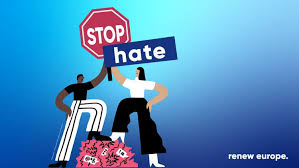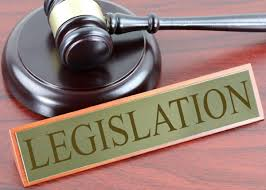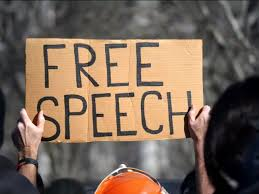Have you ever seen unfriendly comments in the comment section of social media? Have you ever joined the team of ‘negative reviews’ or spoken in a dissuasive manner?
The Internet is a place to connect people of all walks of life and different races around the world. People can freely express their views and share their lives in cyberspace. However, the Internet is a double-edged sword. While people enjoy the online world, they will also encounter some unexpected harm – hate speech and online harm. This kind of hate speech has spread to various social platforms and will have a certain impact on people’s real lives.
So what is hate speech? How should we draw the line between freedom of speech and hate speech? This is a problem that is closely related to each and every one of us, and we have to pay attention to it.
What is Hate Speech?

Hate speech refers to speech by individuals or groups that insults, discriminates, attacks, and criticizes characteristics such as gender, race, religion, ethnicity, and sexual orientation. For example, Facebook once posted some web pages containing racist attacks on Australia’s famous website, but it refused to delete this informative page, which caused dissatisfaction among netizens.1 The scope of hate speech is very broad. Different countries and platforms have different definitions of hate speech, and there is no unified definition of free speech and hate speech. But I believe the most fundamental issue is to explore how to protect freedom of speech while preventing individuals or groups from being treated unfairly and hate speech full of discrimination.
We will encounter many difficulties and challenges in the process of combating hate speech. When defining free speech and hate speech, it is often found that there are many seemingly aggressive statements that cannot be classified as hate speech. For example, some netizens may use some black humor to comment on a post, while others may use an ironic tone to satirize certain phenomena. If these comments are labeled as hate speech, it will cause a phenomenon of excessive censorship, which will affect freedom of speech. On the other hand, when discriminatory and violent language becomes hate speech, inciting sensitive speech, stirring up disputes, and leading to unstable order in the real world, speech becomes a common cybersecurity issue for everyone, which does not fall within the scope of freedom of speech.On the other hand, when discriminatory and violent language becomes hate speech, inciting sensitive speech, stirring up disputes, and leading to unstable order in the real world, speech becomes a common cybersecurity issue for everyone, which does not fall within the scope of freedom of speech.
The Spread of Hate Speech on Online Platforms
Social media, as a product of the digital age, has provided humanity with a wealth of entertainment and convenience. However, at the same time, the emergence of social media has brought about rapid development in the spread and impact of hate speech. When browsing social media platforms, it is not difficult to find that emotionally charged comments are often more likely to engage netizens than neutral or positive comments, which can lead to the spread of discriminatory or misleading content more quickly. For example, when three netizens evaluate the same thing, the fourth person will interpret the facts out of context when they see the latest comment, which forms a rumor. Due to the small cost and minimal impact of posting an inappropriate comment, the accumulation of a large number of inappropriate comments can cause unpredictable harm to individuals or groups. At the same time, the conflict between rumor mongers and coordinators has further intensified hate speech on the internet.
There is also a greater challenge for the network platform, which is to speak anonymously. The original purpose of anonymity is to protect the privacy of Internet users and people’s freedom of speech. Although anonymity has become a tool for protecting people, it also provides opportunities for some criminals to create arbitrary and malicious comments. Those who post hate speech under the protection of anonymity can not bear the consequences in reality but can cause harm to others on the internet. Countries with different beliefs and ideologies, as hate speech on the internet, can lead to varying degrees of disputes and have a great impact on world peace and development. The emergence of anonymity also brings greater difficulties to maintaining online order and holding criminals accountable.
Case Study: Christchurch Mosque Attack and Cyberradicalization

The intensification of real-world conflicts caused by online hatred has emerged in countries around the world. One of the most serious cases of online hatred turning into real-life violence is the 2019 New Zealand Christchurch mosque attack. This conflict was initially caused by racial discrimination. The gunman is a white supremacist who first expressed his personal extremist views on online platforms, incited public opinion, sparked heated discussions on various social forums, and then erupted into conflicts about racism. He launched an attack on the mosque in Kleist and live-streamed the process of the attack on Facebook, causing a huge uproar on the internet. The spread was very fast, and major social media outlets wanted to remove the video to stop the spread, but it was too late.
The Christchurch mosque attack serves as a warning to the government, social media, and technology companies regarding their measures to address hate speech on the internet, prompting them to reassess speech security and accelerate their attention and protection of cybersecurity. This has given the government and even the world a new understanding of hate speech and sparked a heated discussion on media responsibility laws and regulations.
It can be seen that extremism is increasingly prevalent in the world, and many individuals or organizations are not bound by online platform policies or even laws. Although social media may review and regulate online speech, general regulation cannot audit some encrypted speech. Extremists will infiltrate specific groups through individual niche platforms or use hidden methods, gradually affecting mainstream media and ultimately causing unpredictable impacts in the real world. Extremism continues to develop in the online world.
Measures to Regulate Hate Speech

With the increasing development of the internet, many issues related to hate speech have also been exposed. This has attracted high attention from all walks of life, who are trying to intervene in online speech through various means in an attempt to address hate speech.
Legislation: Germany has introduced a law that mainly targets major social media companies, requiring them to delete various illegal hate speech on their platforms within 24 hours. Failure to do so will result in hefty fines. Afterward, the European Union also introduced various laws and regulations aimed at regulating and intervening in online hate speech, attempting to limit the spread of hate speech through fines and penalties.
Platform review: Major mainstream social media platforms around the world, such as YouTube, Facebook, Twitter, X, etc., have successively introduced varying degrees of community speaking standards and issued various guidelines for online communities. At the same time, AI and algorithms will also be used to block or delete inappropriate extremist speech, and to enhance the rationalization of supervision through a manual article by article review, avoiding the deletion of content that does not belong to the scope of hate speech.
Social organizations: In response to inappropriate remarks made by extremists, social organizations spontaneously formed by people around the world hold anti-speech activities, encouraging online users to view hate speech from an optimistic perspective through practical actions, and encouraging users to be brave enough to break and solve hate speech problems.
I am glad to see that these measures have played a crucial role in the efforts to address hate speech. While they can be helpful, they have also brought about other issues. If online platforms excessively review netizens’ comments, it will limit users’ freedom of speech, bring bad social experiences to users, and cause dissatisfaction and loss of some users. This not only affects the social benefits of online platforms, but also brings losses to the economic benefits of online platforms.
So, who can define hate speech? Who can ensure that the legitimate rights and interests of users are not infringed upon? Who can prevent laws and regulations from misjudging reasonable proposals?
Freedom of Speech and Anti-Regulatory Hate Speech

Although preventing hate speech is the trend, there are still some voices that insist on opposing the regulation of hate speech. This is because, in the process of restricting hate speech, it greatly affects the development of freedom of speech. For example, toxic technocultures propagate precisely because of the liminal and fluid connectedness of Internet platforms. During the height of GG, for example, administrators claimed repeated attempts to doxx Quinn were the result of 4chan brigading Reddit (cupcake1713, 2014). While possibly true, this also problematically positions certain uses of Reddit as “more legitimate” than others. 2 Due to the fact that laws and regulations regulating hate speech are introduced by the national government, this can lead to the government intervening in people’s demands by using the regulations originally intended to regulate hate speech. Some voices that truly reflect the inner desires of the people, or opposition groups of civil organizations, if their statements are not in line with the interests of the government, will be blocked by the upper-level government as hate speech. It is unreasonable to expect the online harms regulator to become an expert in all regulatory fields to deal with these sector-specific issues or, indeed, to expect platforms to develop an appreciation of risks in relation to some highly specialist forms of content.3 This inevitably raises concerns that if too much management power is given to the upper-level government or social platforms, it may be exploited by some individuals or organizations with ulterior motives, leading to biased and discriminatory law enforcement processes, guiding public opinion, and thus satisfying their own interests. At the same time, some organizations that touch on upper-level interests may also experience stricter speech restrictions than other platforms, which is extremely unfair to various degrees.
On the other hand, if hate speech is not monitored and managed, it will bring devastating disasters to society. Due to the influence of hate speech, internet users may suffer from psychological disorders, affecting their mental health, and in severe cases, leading to self-harm or suicide, and even causing serious harm to the personal and property safety of others in society. Under the interference of hate speech, originally erroneous extremist remarks will gradually be accepted by the public, and people will feel that extremism is a normal thing, which happens to be in line with the interests of extremist organizations, posing challenges to social security and seriously affecting the stability of the world order.
So, what is the bottom line of speech? Who will set this bottom line? This requires adopting some more peaceful methods.
Regulatory Transparency: Online platforms need to understand their own responsibilities and know how to better manage speech on the platform. They should publicly and transparently display these management processes to users, accept their supervision, and provide users with avenues for appeal to avoid misjudging speech and affecting their basic freedom of speech.
Authorization level: Many platform features should be decided by users themselves whether or not to use them. If users are unwilling to use a certain feature because they will see comments they don’t like, they can choose to turn it off or block it separately. This was originally a right that users should enjoy, which can bring them a better user experience. Social media platforms should also use AI or algorithmic tools to strengthen the deletion and blocking of inappropriate speech and impose appropriate penalties to prevent public opinion from being exploited by criminals.
Conclusion
Our social media was originally a space for people to express themselves freely and stimulate creativity. It is precisely the existence of some lawless elements who create public opinion, provoke disputes, and resort to any means necessary to achieve their own interests, sacrificing the interests of others to satisfy their own interests. Therefore, the Internet should not become the cradle of hate speech. Although freedom of speech is a fundamental right that every citizen in society should have, we must also be aware of the harm of hate speech and the consequences if we do not control it while protecting our own freedom of speech. The challenge we currently need to address is finding a balance between free speech and regulating hate speech, which is a moderate management state. The government and online platforms should not only ensure people’s freedom of speech when using social media, allowing their speech to be made public but also prevent the breeding of hate speech and fundamentally eliminate it. This is not only the responsibility of the government and platforms, but also the responsibility of individuals and society. The government, platforms, and social organizations should lead by example and work together to provide people with a healthy and comfortable social space.
Word Count: 2107
Reference
- Oboler, A. (2013). Aboriginal memes and online hate. Melbourne: Online HatePrevention Institute, 19. https://www.ohpi.org.au/reports/IR12-2-Aboriginal-Memes.pdf
2. Massanari, Adrienne, (2017). New media & society, 19(3), 329 – 346. https://sydney.leganto.exlibrisgroup.com/leganto/public/61USYD_INST/citation/44140578840005106?auth=SAML
3. Moore, Martin, Tambini, (2021). Regulating big tech: Policy responses to digital dominance, 93-109. https://sydney.leganto.exlibrisgroup.com/leganto/public/61USYD_INST/citation/44140578860005106?auth=SAML

Be the first to comment